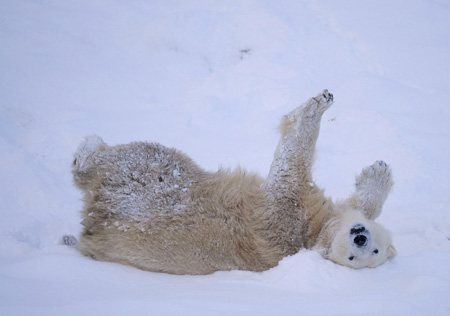Science and Health
Polar bear poo helps in superbug hunt
(Agencies)
Updated: 2010-01-14 09:20
 |
Large Medium Small |
LONDON: Polar bear droppings are helping scientists shed light on the spread of deadly antibiotic-resistant superbugs.
 Mercedes the polar bear enjoys the snow at the Highland Wildlife Park in Kingussie, Scotland December 29, 2009. [Agencies] |
Bacteria such as methicillin-resistant staphylococcus aureus (MRSA) are a growing problem in hospitals and researchers are anxious to understand how they evolve.
| ||||
In contrast to the results from polar bears on the Svalbard archipelago, antibiotic resistance has been discovered in a range of animals including deer, foxes, pigs, dogs and cats that live close to humans.
Trine Glad of the University of Tromso said her team's research, published on Thursday in the journal BMC Microbiology, was important evidence in the debate as to whether resistance occurs naturally or is caused by exposure to human antibiotics.
The rise of superbugs is prompting some drug companies to look again at antibiotics, a field that has been neglected in recent years. Both AstraZeneca and Sanofi-Aventis have signed new antibiotic research collaborations this week.










